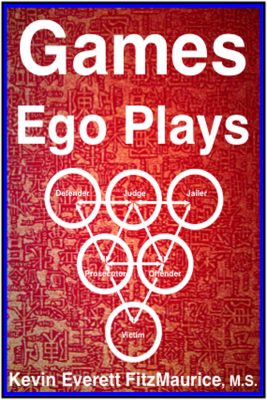Musts and Demands: Friends & Foes
- Garden will teach you an easy and effective Cognitive Behavioral Therapy (CBT & REBT) system.
- REBT practitioners update your practice for greater effectiveness and efficiency with Not.
Musts and Demands are our friends and foes, depending on their usage. How and why you demand is important.
“In all things have no preferences.” —Miyamoto Musashi
“Life is under no obligation to give us what we expect.” —Margaret Mitchell
“Hell, there are no rules here—we’re trying to accomplish something.” —Thomas Edison
“The truth is what is. And what should be is a fantasy—a terrible fantasy.” —Lenny Bruce
- Read and discover the best diagrams and maps of how people play games with your mind and heart.
- Read and discover how CBT, REBT, & Stoicism evolved into one system: STPHFR.
Musts and Demands: Both friends and foes?
- Musts and demands are an integral part of life, for example, you must breathe to live.
- Musts and demands have a survival basis.
- That is, your body demands air, water, food, shelter, and rest to survive.
- Musts are therefore crucial, necessary, and your friends.
- However, musts and demands have also been shown to be at the center of much psychological disturbance by Rational Emotive Behavior Therapy (REBT).
- How is it possible for musts to be both your friend and foe?
Musts and Demands: Physical Survival Musts
- There are “musts” for things I must do and “must-nots” for things that I must not do to stay alive.
1: POSITIVE MUSTS
- Musts and demands for physical survival are friends.
- Examples: I must breathe, drink fluids, eat food, find shelter, and obtain rest.
- My immune system must attack and kill intruders.
- My heart must beat.
2: NEGATIVE MUSTS (Must-Not)
- Musts and demands for physical protection are friends.
- Examples: I must not breathe poisonous air, drink poisonous fluids, eat poisonous food, be without necessary shelter, go without adequate rest, be in unsafe environments or situations.
- I must not be without the medicine I need to survive.
Musts and Demands: Conclusion
- These two types of musts are friends as they help your body and/or the bodies of those you are attached to, to survive.
- Read and discover how CBT, REBT, & Stoicism evolved into one system: STPHFR.
Musts and Demands: Dangerous Comfort Musts
- There are “musts” for things I don’t need and “must-nots” for things that are not real threats.
3: POSITIVE MUSTS
- Musts for physical comforts and conveniences are enemies.
- Examples: I must always be comfortable, find it easy to care for my body, and have my needs met quickly and conveniently.
4: NEGATIVE MUSTS (Must-Not)
- Musts for physical discomforts and inconveniences are enemies.
- Examples: Musts for physical discomforts and inconveniences are enemies.
- Examples: I must never be uncomfortable, have to work too hard, have to wait for needs to be taken care of, or experience frustration.
Musts and Demands: Conclusion
- These two are unfriendly musts as they lead to poor coping, poor problem-solving, unneeded stress, false expectations, irritability, quitting, failure, and anxiousness.
- Read and discover how CBT, REBT, & Stoicism evolved into one system: STPHFR.
Musts and Demands: Hurtful Ego Survival Musts
5: POSITIVE MUSTS
- Musts for ego survival are enemies.
- Examples: I must be accepted, loved, approved, smart, worth more, effective, a member, secure, safe, successful, and superior.
6: NEGATIVE MUSTS (Must-Not)
- Musts for ego protection are enemies.
- Examples: I must not be unaccepted, unloved, unapproved, stupid, worthless, defective, outcast, at risk, open to attack, threatened, insecure, failing, or inferior.
Musts and Demands: Conclusion
- These two musts are unfriendly and hurtful as they lead to: conflicts, endless power struggles, hurt, anger, anxiety, depression, shame, pride, vendettas, jealousy, false striving, imaginary conflicts, and false approval-seeking.
- Read and discover how CBT, REBT, & Stoicism evolved into one system: STPHFR.
Musts and Demands: Hurtful Ego Comfort Musts
7: POSITIVE MUSTS
- Musts for ego comforts and conveniences are enemies.
- Examples: I must always be in a comfortable, nonchallenging, and non-threatening environment.
- People must make it easy for me to talk, relax, win friends, feel safe, feel secure, and be considered good.
8: NEGATIVE MUSTS (Must-Not)
- Musts for ego discomforts and inconveniences are enemies.
- Examples: I must never be challenged, attacked, questioned, or made to feel uncomfortable in any way.
- I must never be challenged, attacked, questioned, criticized, or made to feel uncomfortable in any way.
- I must never have to work to communicate, learn, relax, find friendships, improve, or be considered good.
Musts and Demands: Conclusion
- These two are unfriendly and hurtful musts as they lead to discomfort, anxiety, avoidance, withdrawal, taking the easy way out, lack of risk-taking, unrealistic demands on relationships, intolerance, weakness, and shyness.
- Read and discover how CBT, REBT, & Stoicism evolved into one system: STPHFR.
Musts and Demands: 6 of 8 Forms Are Self-Defeating
- From the above, it is easy to see why REBT is so against musts (demandingness).
- REBT calls must types 3-4 discomfort anxiety and must types 5-8 ego anxiety.
- However, it is important to remember that not all insisting or demanding is hurtful or unproductive (must types 1-2).
- For instance, in true emergencies, demands can be life-saving: “I must swim to land before I drown.”
- The problem is that we create emergencies where none exist in order to justify our demands and thereby cause needless stress, anxiety, and conflict for ourselves and others.
- Whatever you frame as a survival issue, you will make demands about it.
- Whenever your ego is at risk, is threatened, you will make demands to ensure the survival of your ego.
- Therefore, stop putting yourself (ego) at risk.
- Your self (authentic) is never really at risk.
- No matter what anyone says or judges, your self will remain the same, untouched, and unaffected.
- Read and discover how CBT, REBT, & Stoicism evolved into one system: STPHFR.
Being Right Instead of Being Helpful Makes You Wrong
- The point is that people do more wrong in the name of being right than people do in the name of being wrong.

- Read and discover how CBT, REBT, & Stoicism evolved into one system: STPHFR.
Quotations Various Sources
Listed Alphabetically
“A fool is only a fool because he won’t see he is a fool.” —Kevin Everett FitzMaurice
“A man of genius makes no mistakes. His errors are volitional and are the portals of discovery.” —James Joyce
“But if ye be without chastisement, whereof all are partakers, then are ye bastards, and not sons. — Hebrews 12:8
“By honestly acknowledging your past errors, but never damning yourself for them, you can learn to use your past for your own future benefit.” —Albert Ellis and Robert A. Harper, A Guide to Rational Living, Third Edition, p. 194
“Correction is grievous unto him that forsaketh the way: and he that hateth reproof shall die.” —Proverbs 15:5
“Failure doesn’t have anything to do with your intrinsic value as a person.” —Albert Ellis and Robert A. Harper, A Guide to Rational Living, Third Edition, p. 206
“For whom the Lord loveth he chasteneth, and scourgeth every son whom he receiveth.” —Hebrews 12:6
“If we eliminated all errors, we would also eliminate much discovery, art, insight, learning, and creativity that results from facing errors.” —Kevin Everett FitzMaurice
“If ye endure chastening, God dealeth with you as with sons; for what son is he whom the father chasteneth not?” —Hebrews 12:7
“In all things have no preferences.” —Miyamoto Musashi
“My son, despise not the chastening of the LORD; neither be weary of his correction:” —Proverbs 3:11
“Perfection is not attainable, but if we chase perfection we can catch excellence.” —Vince Lombardi
“The greatest explorer on this earth never takes voyages as long as those of the man who descends to the depth of his heart.” —Julien Green
“The trouble with most of us is that we would rather be ruined by praise than saved by criticism.” —Norman Vincent Peale
“When receiving correction, the wise seeks to learn, and the fool seeks to justify with excuses.” —Kevin Everett FitzMaurice
Quotations from Scripture on Counseling
Listed Biblically
“A wise man will hear, and will increase learning; and a man of understanding shall attain unto wise counsels:” —Proverbs 1:5
“Where no counsel is, the people fall: but in the multitude of counselors there is safety.” —Proverbs 11:14
“The way of a fool is right in his own eyes: but he that hearkeneth unto counsel is wise.” —Proverbs 12:15
“Deceit is in the heart of them that imagine evil: but to the counselors of peace is joy.” —Proverbs 12:20
“Without counsel purposes are disappointed: but in the multitude of counselors they are established.” —Proverbs 15:22
“Hear counsel, and receive instruction, that thou mayest be wise in thy latter end.” —Proverbs 19:20
“Every purpose is established by counsel: and with good advice make war.” —Proverbs 20:18
“Take counsel, execute judgment; make thy shadow as the night in the midst of the noonday; hide the outcasts; bewray not him that wandereth.” —Isaiah 16:3
“Extol not thyself in the counsel of thine own heart; that thy soul be not torn in pieces as a bull [straying alone.]” —Ecclesiasticus 6:2
“As timber girt and bound together in a building cannot be loosed with shaking: so the heart that is stablished by advised counsel shall fear at no time.” —Ecclesiasticus 22:16
“Give not over thy mind to heaviness, and afflict not thyself in thine own counsel.” —Ecclesiasticus 30:21
“A man of counsel will be considerate; but a strange and proud man is not daunted with fear, even when of himself he hath done without counsel.” —Ecclesiasticus 32:18
“And let the counsel of thine own heart stand: for there is no man more faithful unto thee than it.” —Ecclesiasticus 37:13
“Let reason go before every enterprize, and counsel before every action.” —Ecclesiasticus 38:33
“Gold and silver make the foot stand sure: but counsel is esteemed above them both.” —Ecclesiasticus 40:25
- Read and discover how CBT, REBT, & Stoicism evolved into one system: STPHFR.
Related Pages of Free Information
- 5 Thinking Positions
- 4 Ways “Musts” or Demands Cause Stress
- CBT, CT, & REBT Cognitive Psychotherapies: List Pages
- Coping Skills: Free Help
- Counseling Issues: Free Help
- Ego & Self-Esteem Fast-Facts
- Emotional Responsibility: List Pages
- Exercises & Techniques: List Pages
- Feeling & Coping: Fast-Facts
- REBT (Rational Emotive Behavior Therapy): List Pages
- REBT & 4 Kinds of Demands
- REBT Is Deeper than CBT, CT, & Other Counseling Theories
- REBT’s 11 Irrational Beliefs
- REBT’s ABCs of Emotions
- Self-Esteem Issues: List Pages
- Unconditional Self-Esteem (USE): Defined
- Read and discover the best diagrams and maps of how people play games with your mind and heart.
- Read and discover how CBT, REBT, & Stoicism evolved into one system: STPHFR.
6 Groups of Topics Menu
- 1. Pages by Topic
- 2. Fast-Facts by Topic
- 3. Quotations by Topic
- 4. Poems by Topic
- 5. Scripture by Topic
- 6. Websites by Topic
- Read and discover how CBT, REBT, & Stoicism evolved into one system: STPHFR.
- Read and discover the world’s best breathing exercise for centering and peace of mind.
10 Skills & Topics Menu
- 1. Coping Skills & Topics
- 2. Problem-Solving Skills & Topics
- 3. Communication Skills & Topics
- 4. Recovery Skills & Topics
- 5. Anger Skills & Topics
- 6. Blame Skills & Topics
- 7. Thinking Skills & Topics
- 8. Responsibility Skills & Topics
- 9. Counseling Skills & Topics
- 10. Praying Skills & Topics
- Read and discover how CBT, REBT, & Stoicism evolved into one system: STPHFR.
- Read and discover the world’s best breathing exercise for centering and peace of mind.



